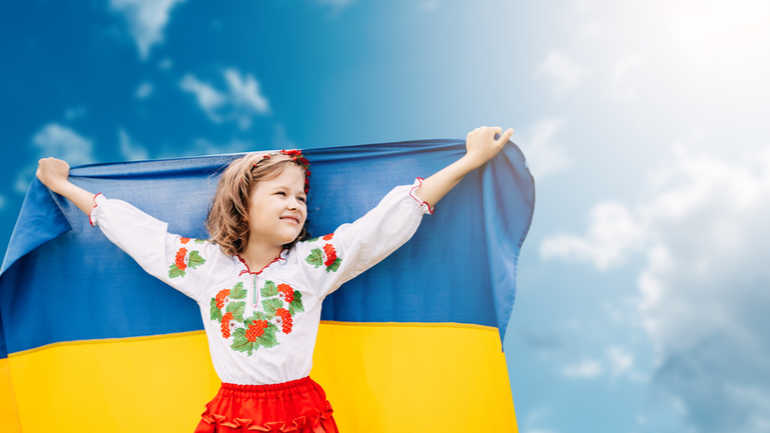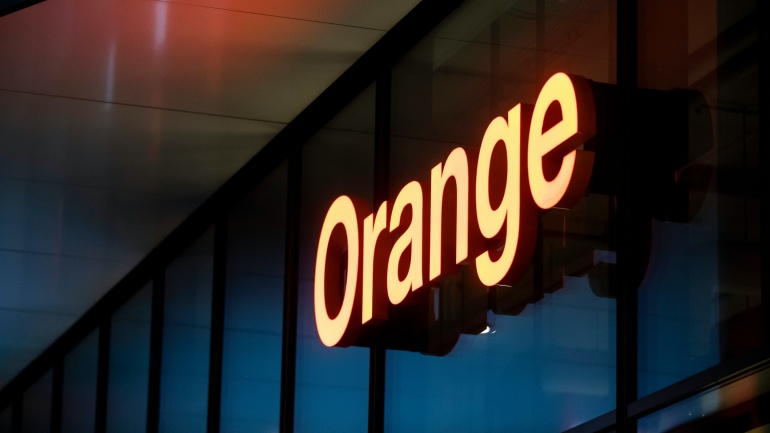The Orange subsidiary, Orange Cyberdefense, has purchased all of the shares of SCRT and Telsys, two Swiss businesses. These two sister companies, which have operations in Geneva and Bern, together with a joint headquarters in Morges, near Lausanne, employ over 100 professionals with expertise in cybersecurity and related services. The growth of Orange Cyberdefense is a strategic goal for the Orange Group as it seeks to position itself as a top European cybersecurity business. The purchases, according to Orange, would strengthen the group’s cyberdefense business, which intends to generate 1 billion euros in revenue next year. The financial terms of this deal have not been disclosed. Currently, Orange Cyberdefense operates in nine countries, including France, Belgium, Denmark, Germany, the Netherlands, Norway, Sweden, the United Kingdom and Switzerland. With the acquisition of SCRT and Telsys, Orange Cyberdefense is now able to provide around-the-clock local assistance to Swiss organizations.…
French telecoms to reduce their energy use Orange has proposed numerous energy-saving measures in order to address the current energy crisis that is expected to strike Europe this winter. Orange has announced that it will reduce its immediate power use by 5 to 10% for one hour every day. Altice will also assess its mobile network settings and implement power consumption cutbacks based on system traffic. The telecom provider will also phase out less energy-efficient equipment and limit its use of air conditioning when feasible in its data centers. Its offices and businesses will also have tighter controls over air conditioning and lighting usage. Read more at: https://tinyurl.com/2p83c9km Elon Musk decides to buy Twitter after all In the upcoming days, Elon Musk and Twitter may come to a settlement to terminate their legal dispute, paving the way for the richest man in the world to finalize his $44 billion purchase…
T-Mobile gives an AI wildfire detection system access to 5G T-Mobile US, the disaster-focused tech startup Pano AI, and Portland General Electric have collaborated to install a network of 5G-connected cameras near Portland, Oregon. The cameras are linked to an AI detection system that watches for the earliest indications of wildfires so that the emergency services can respond to these possible emergencies more quickly than they would otherwise. Given the horrific wildfires that have ravaged the United States in recent years, systems such as these have the potential to be extremely valuable. Read more at: https://tinyurl.com/yr7xr3ac European telecoms testing holographic calls Together with Matsuko, Telefónica, Orange, Deutsche Telekom and Vodafone are creating a platform that will connect the physical and digital worlds via a mobile connection. The experimental platform takes advantage of 5G connectivity, which has a fast speed, high bandwidth and low latency. The system produces a 2D video…
Ofcom has a plan for phone boxes Under new guidelines published by the UK communications regulator, Ofcom, stronger security for public call boxes went into effect. The new guidelines update from Ofcom’s aims to guarantee that strategically located phone boxes are not removed and that they are modified to provide extra services. As a result, phone boxes will be protected against removal if they are still needed by a local community. Millions of UK residents continue to rely on older technologies such as landlines and payphones for connectivity. Read more at: https://tinyurl.com/mryanv67 TIM to cut 1,200 jobs to minimize costs TIM has reportedly secured an agreement with labor unions that will allow the company to cut up to 1,200 positions, allowing TIM to save significantly on domestic personnel expenses. Cuts will be implemented through a voluntary early retirement program, which will be the first step in the Italian incumbent’s larger…
Orange expands its phone recycling program Orange, a French telecommunications company, is extending its “Re” program, which offers phone recycling, refurbishing, repairs and returns. Customers may drop off phones that are no longer in use at the store, and Orange says any income earned from recycling these old devices will be donated to the Emmaüs International network. The telecom company has stated that the initiative would be expanded to the rest of its European areas, which include Moldova, Slovakia, Romania and Spain. Read more at: https://tinyurl.com/yckkrmss Exoprise launches new monitoring solution for collaboration apps Exoprise, a Digital Experience Monitoring (DEM) service provider, has introduced the latest version of its Service Watch Desktop (SWD) platform. This product helps IT teams to successfully identify problems and forecast performance deterioration when using enterprise collaboration platforms like Microsoft Teams, Zoom, WebEx and Google Meet. Businesses may drastically reduce MTTR and total troubleshooting time by…
Orange and MasMovil in talks about joint venture Orange and MasMovil have stated that they are in talks to launch a 50:50 joint venture (JV) in Spain. Orange’s Spanish subsidiary is valued at €8.1 billion, while MasMovil is valued at €11.5 billion, for a total enterprise value of €19.6 billion. The merged operator would include around 7.1 million fixed line customers and 20.2 million mobile users, with a combined FTTH network of approximately 16 million residences. The operators claim that the combination would result in a slew of meaningful synergies of more than €450 million within three years of the merger closing. Read more at: https://tinyurl.com/y5d9h3y7 Google acquires Mandiant to boost its cloud offering In a move aimed at bolstering the capabilities of its Google Cloud platform, Google has agreed to pay $5.4 billion for the cybersecurity firm Mandiant. To address harmful information and software vulnerabilities, Google Cloud currently offers…
Telefonica partners with Meta A new agreement between Meta and Telefonica has been inked to create a Metaverse Innovation Hub in Madrid. Local startups and developers will have access to a 5G laboratory inside the Hub, where they will be able to use a metaverse end-to-end testbed using Meta and Telefonica’s networks and equipment. The hub’s goal is to test innovative network topologies, use cases and devices in order to speed metaverse network and device readiness. Participants will have access to Telefonica’s open innovation ecosystem, as well as the Innovation and Talent Hub Resources and Meta’s engineering capabilities. Read more at: https://tinyurl.com/mf2jbjxu Turkcell partners with Ribbon and Odine Ribbon Communications has teamed up with Odine, a virtualized and containerized infrastructure and solution integrator, to provide Turkcell, a Turkish integrated telecommunications and technology services provider, with next-generation voice interconnect services. Ribbon’s SBC SWe, which delivers the features and capabilities of appliance-based…
Telecom firms in Europe are coming together to assist Ukrainians in staying connected, and they are using a variety of steps that differ from company to company and from country to country, depending on the markets in which they operate. Here are some of the steps that telecommunications firms are taking. Deutsche Telekom has started providing free calls and text messages to Ukraine. This initiative affects both individual and commercial clients making calls from landlines and mobile phones, as well as roaming in Ukraine. T-Mobile Polska and T-Mobile US, the operator’s Polish and US subsidiaries, both launched comparable deals. Verizon has waived costs for consumer and corporate users traveling to and from Ukraine. Customers with foreign coverage bolt-ons will not lose any minutes from their subscription, and voice and text roaming costs have been waived. Virgin Media O2 has lifted costs for calls to and from Ukraine,…
Orange, a French multinational telecommunications corporation, has extended its 5G test program in the 26 GHz band. This initiative was launched in 2019 to focus on testing the capabilities of frequencies for industrial use cases in France. A consortium consisting of Orange, Nokia, the railway company SNCF and the academic facility Institut Mines – Telecom (MIT), has been given a grant from the French government to trial 4.0 industrial applications over 5G using the 26 GHz spectrum. The grant will allow the consortium to develop an existing pilot that Orange performed for eighteen months at the Rennes train station in France, while working with the French state-owned railway company SNCF and Nokia. As part of the project, Orange will provide network services and Nokia will provide technological connectivity offerings, including private networks, while MIT will focus on data hosting using edge computing. This project puts emphasis on…
Google Cloud and Ericsson team up to deliver 5G and Edge cloud solutions for telcos The two tech giants – Google Cloud and Ericsson – have come together to jointly develop 5G and edge cloud solutions to help communications service providers (CSPs) digitally transform and unlock new enterprise and consumer use cases. Google Cloud and Ericsson are developing new solutions at Ericsson’s Silicon Valley D15 Labs, a state-of-the-art innovation center where advanced solutions and technologies can be developed and tested on a live, multi-layer 5G platform. Thomas Kurian, CEO at Google Cloud, said that organizations have a tremendous opportunity to digitally transform their businesses with 5G, using cloud capabilities like artificial intelligence and machine learning at the edge. Read more at: https://tinyurl.com/2c5sez86 DIDWW implements the STIR/SHAKEN technology The global telecommunication services provider, DIDWW, has implemented caller ID authentication through the STIR/SHAKEN set of standards. These standards act as the framework…













